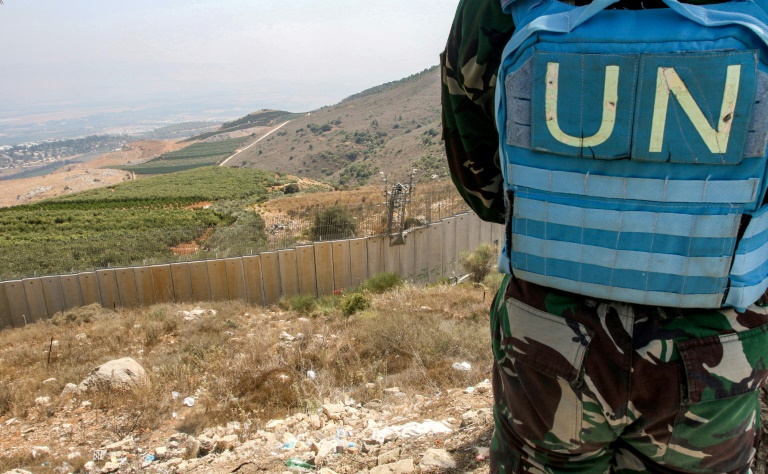Irish UN peacekeeper killed in south Lebanon

UN peacekeeping force UNIFIL has been deployed in south Lebanon since 1978, acting as a buffer between Lebanese forces and those of neighbouring Israel
Aqibya – An Irish member of the UN peacekeeping force monitoring south Lebanon near the Israeli border was killed and three wounded after their convoy came under fire, UN and Irish sources said Thursday.
Irish Prime Minister Micheal Martin said he was “deeply shocked and very saddened” by the loss of life.
“A convoy of two armoured utility vehicles carrying eight personnel travelling to Beirut came under small arms fire” late Wednesday, the Irish military said.
“Four personnel were taken to Raee Hospital, near Sidon as a result of the (2115 GMT) incident,” the military said. “One soldier was pronounced dead on arrival at the hospital and another has undergone surgery and is in a serious condition. The other two soldiers are being treated for minor injuries.”
UN peacekeeping force UNIFIL said the “incident” happened near the village of Al-Aqbiya, just outside the force’s area of operations in a strip along Lebanon’s southern border with Israel. It said it had opened an investigation.
An AFP photographer reported that a UNIFIL vehicle had slammed into a shop on the road towards Lebanon’s main southern city of Sidon.
Witnesses told AFP the vehicle had been blocked by villagers after it took a road along the Mediterranean coast not normally used by the UN force.
They said they had heard gunfire and the driver had appeared to lose control of the vehicle as the convoy attempted to leave the area.
Irish Foreign Minister Simon Coveney expressed “profound sadness and a deep sense of shock” over the peacekeeper’s death.
Lebanon’s caretaker Prime Minister Najib Mikati expressed his “deep regret following this painful incident” and underlined the “need to carry out the necessary inquiries to determine its circumstances and prevent its repetition”.
– Mandate dispute –
UNIFIL was set up in 1978 to monitor the withdrawal of Israeli forces after they invaded Lebanon in reprisal for a Palestinian attack.
Now boasting nearly 10,000 troops, the UN force acts as a buffer between Israel and Lebanon, which remain technically at war.
Israel withdrew from south Lebanon in 2000 but fought a devastating 2006 war with Lebanese militant group Hezbollah and its allies.
UNIFIL was beefed up to oversee the ceasefire that ended that war.
Over the years there have been a number of incidents between Hezbollah supporters and the UN force in border areas loyal to the Iran-backed group.
During the annual renewal of UNIFIL’s mandate by the UN Security Council at the end of August, its terms of deployment were slightly altered.
To the anger of Hezbollah, the new wording states that the force “is allowed to conduct its operations independently”.
Previously, peacekeepers had routinely coordinated their patrols and other movements inside the area of operations with the Lebanese army.
Hezbollah leader Hassan Nasrallah condemned the changed rules as “a violation of Lebanese sovereignty” that served Israel’s interests.
Hezbollah is the only one of Lebanon’s armed group that was allowed to keep its weaponry after the 1975-91 civil war.
It insists that its arsenal remains necessary for defence against its arch foe Israel.
Hezbollah’s role in Lebanon has polarised the country’s politics, creating opposing blocs that have failed to find common ground on forming a regular government to replace the current caretaker administration.
The two sides have also failed to come up with a compromise candidate to fill the vacant presidency since Michel Aoun’s mandate expired at the end of October.
Lawmakers convened on Thursday for a new attempt to elect a president but failed for a 10th time, despite the need to address a deep financial crisis that has pushed most of the population into poverty.
